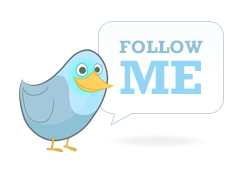At the ACS conference, I have attended many talks these last four days, but one made some “connections” which intrigued me. I tell its story (or a part of it) here. But to start, try the following experiment. Find a Word document of .docx type on your hard drive Remove the .docx suffix and replace it with a .zip suffix. Expand as if it is an archive (it is!). A folder is created and this itself contains four further folders.
Messaggi di Rogue Scholar

Image via Wikipedia I’ve been interested for some time in capturing information and the context in which that information is created in the lab. The question of how to build an efficient and useable laboratory recording system is fundamentally one of how much information is necessary to record and how much of that can be recorded while bothering the researcher themselves as little as possible.
This is the second of two posts discussing the talk I gave at the Science 2.0 Symposium organized by Greg Wilson in Toronto in July. As I described in the last post Jon Udell pulled out the two key points from my talk and tweeted them.
Some months ago now I gave a talk at very exciting symposium organized by Greg Wilson as a closer for the Software Carpentry course he was running at Toronto University.
Google Wave has got an awful lot of people quite excited. And others are more sceptical. A lot of SciFoo attendees were therefore very excited to be able to get an account on the developer sandbox as part of the weekend. At the opening plenary Stephanie Hannon gave a demo of Wave and, although there were numerous things that didn’t work live, that was enough to get more people interested.
In the previous post I discussed a workflow using Wave to author and publish a paper. In this post I want to look at the possibility of using it as a laboratory record, or more specifically as a human interface to the laboratory record. There has been much work in recent years on research portals and Virtual Research Environments.
Yes, I’m afraid it’s yet another over the top response to yesterday’s big announcement of Google Wave, the latest paradigm shifting gob-smackingly brilliant piece of technology (or PR depending on your viewpoint) out of Google. My interest, however is pretty specific, how can we leverage it to help us capture, communicate, and publish research?
There is an interesting meta-discussion going on in a variety of places at the moment which touch very strongly on my post and talk (slides, screencast) from last week about “web native” lab notebooks.
This is a case of a comment that got so long (and so late) that it probably merited it’s own post. David Crotty and Paul (Ling-Fung Tang) note some important caveats in comments on my last post about the idea of the “web native” lab notebook. I probably went a bit strong in that post with the idea of pushing content onto outside specialist services in my effort to try to explain the logic of the lab notebook as a feed.
At Science Online 09 and at the Smi Electronic Laboratory Notebook meeting in London later in January I talked about how laboratory notebooks might evolve. At Science Online 09 the session was about Open Notebook Science and here I wanted to take the idea of what a “web native� lab record could look like and show that if you go down this road you will get the most out if you are open.